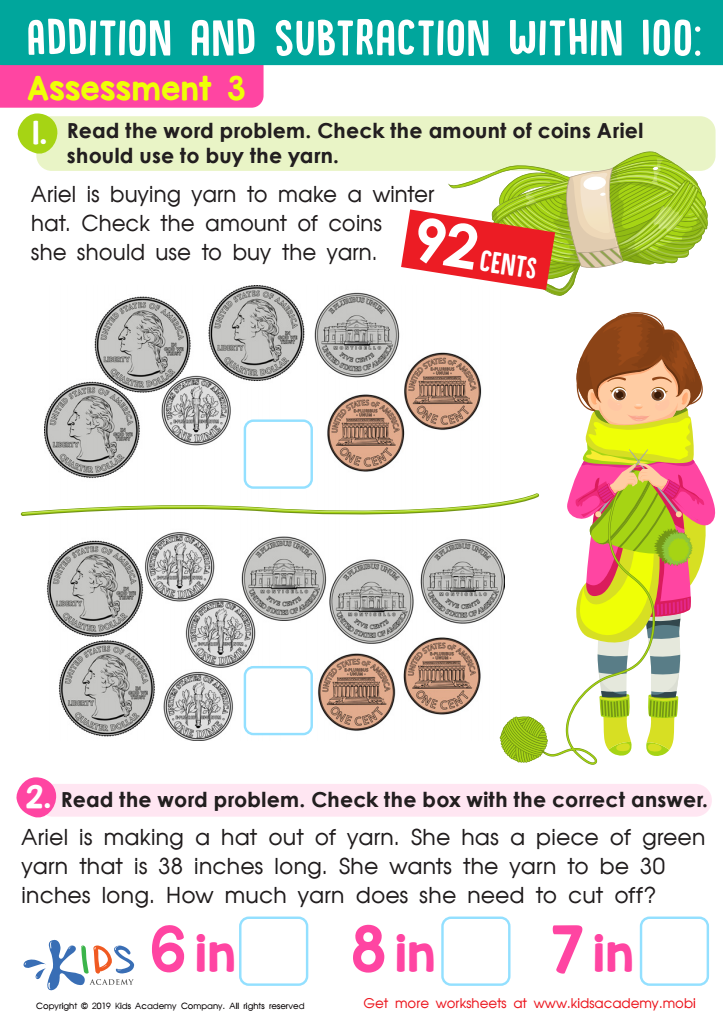Money worksheets activities for 8-Year-Olds
1 filtered results
-
From - To


Assessment 3 Math Worksheet
Money worksheets activities are an indispensable tool for teaching children and students the essential life skills of money management and financial literacy. In a world where financial transactions form a significant part of our daily lives, understanding the value of money, how to handle it responsibly, and make informed financial decisions is crucial from an early age. This is where the value of engaging, educational money worksheets activities comes into play.
Firstly, money worksheets activities provide a practical and interactive way for learners to grasp the concepts of addition, subtraction, multiplication, and division within a real-world context. By applying these mathematical operations to scenarios involving money, students are more likely to understand and retain the information, seeing its application beyond the classroom.
Moreover, these activities help in developing critical thinking and problem-solving skills. They often present problems that require students to think critically about how to manage money, whether it's calculating change, understanding interest, budgeting, or making spending decisions. This not only reinforces math skills but also prepares students for real-life financial situations they will undoubtedly face in the future.
Another significant benefit of money worksheets activities is that they can be tailored to different age groups and learning stages. For younger children, activities might focus on recognizing and counting money, while older students might tackle more complex tasks such as understanding taxes, investments, and savings strategies. This flexibility ensures that learners are engaged at an appropriate level for their development.
Furthermore, these activities encourage independence and confidence in financial matters. By providing a safe environment to make mistakes and learn from them, money worksheets activities help demystify the concept of money, making it less intimidating and more accessible to young learners.
In conclusion, money worksheets activities are an incredibly useful resource in education. They not only enhance mathematical skills and problem-solving abilities but also equip students with the knowledge and confidence needed to navigate the financial aspects of life successfully. By integrating these activities into the learning curriculum, educators can ensure their students are better prepared for the financial challenges and opportunities of the future.

 Assign to the classroom
Assign to the classroom












